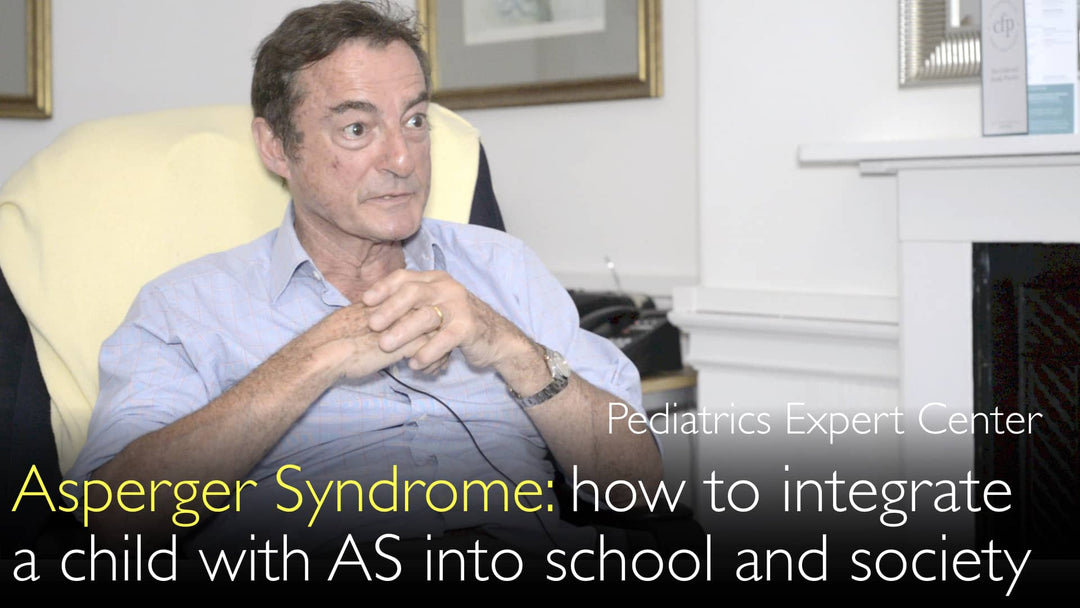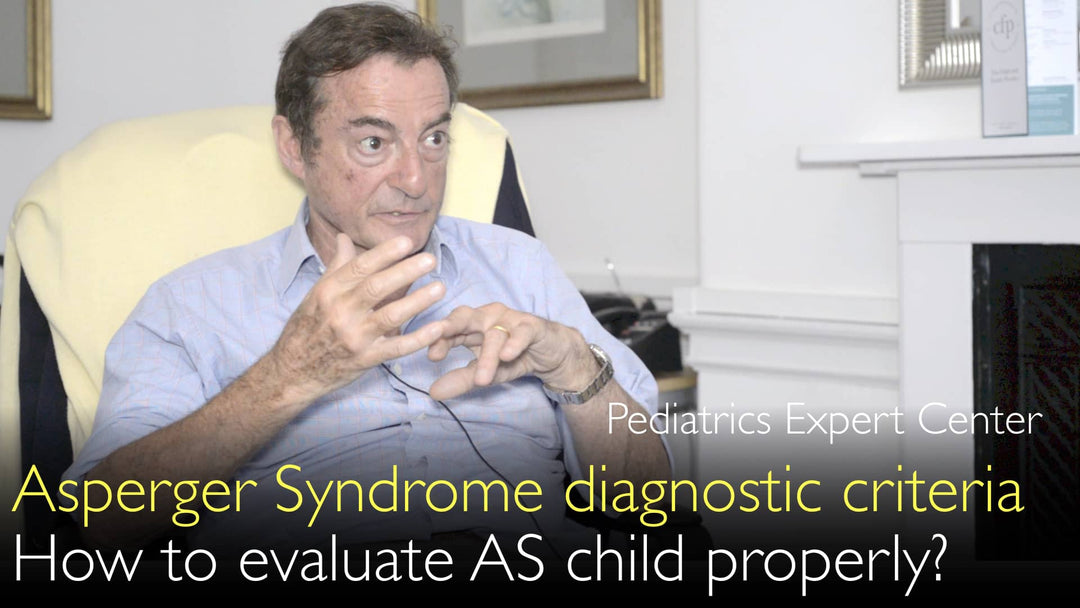Leading expert in pediatric neurodevelopmental disorders, Dr. Ricky Richardson, MD, explains how to help children with Asperger syndrome thrive. He details the unique intellectual strengths and social challenges these children face. Dr. Ricky Richardson, MD, emphasizes the critical importance of an educational environment that nurtures their skills while accommodating their differences. A formal diagnosis can provide immense relief and self-understanding for a child. Children with Asperger's often form strong bonds with peers who share the same condition.
Supporting Children with Asperger Syndrome: Education, Social Integration, and Understanding
Jump To Section
- Asperger Syndrome Strengths and Challenges
- The Importance of Educational Accommodation
- The Power of Diagnosis and Self-Understanding
- Social Connections and Peer Bonds
- Genetic Components and Family Dynamics
- Full Transcript
Asperger Syndrome Strengths and Challenges
Children with Asperger syndrome possess a unique profile of significant intellectual strengths paired with notable social challenges. Dr. Ricky Richardson, MD, describes how these children often have exceptional skills in focused areas like mathematics and computers. However, their social impairment can make them stand out from their peers. They may engage in obsessive, lengthy monologues on topics of interest without recognizing the listener's disengagement. This literal and rigid thinking style is a hallmark of the condition.
The Importance of Educational Accommodation
Getting the educational setting right is absolutely critical for a child with Asperger syndrome to thrive. Dr. Ricky Richardson, MD, stresses that schools must recognize and actively stimulate the child's particular intellectual gifts. Simultaneously, the educational environment must be structured to accommodate their more peculiar or quirky behavioral traits. This dual approach ensures the child can excel academically while feeling supported. A supportive school system is a cornerstone of successful integration.
The Power of Diagnosis and Self-Understanding
Receiving a formal diagnosis of Asperger syndrome can be a profoundly positive and liberating experience for a child. Dr. Ricky Richardson, MD, shares an anecdote about a 13-year-old boy who was assessed. The boy expressed immense gratitude for the diagnosis, stating it finally helped him understand why he was the way he was. This new self-awareness explained why other children found him odd and peculiar. For Dr. Anton Titov, MD, this highlights the therapeutic value of a clear diagnosis beyond mere labeling.
Social Connections and Peer Bonds
Children with Asperger syndrome are often drawn to and form tight bonds with others who have the same condition. Dr. Ricky Richardson, MD, explains that they recognize each other's symptoms and behavioral traits, creating a mutual understanding. This comfort leads to strong friendships, often centered around shared interests like computer games. Data suggests this pattern continues into adulthood, with many individuals with Asperger's marrying others on the spectrum. This natural affinity provides a crucial social outlet.
Genetic Components and Family Dynamics
A strong genetic component is frequently observed in Asperger syndrome and autism spectrum disorders. Dr. Ricky Richardson, MD, notes that when examining family histories, Asperger-type behaviors and traits are almost always found in other relatives. This indicates a hereditary link running through the diagnosis. While specific data on second-generation children was not cited, the familial pattern is well-recognized by experts like Professor David Skuse. Understanding this genetic basis is key to a holistic view of the condition.
Full Transcript
Dr. Anton Titov, MD: For children with Asperger's syndrome, what makes them integrate better in society and the educational system? What makes children with Asperger’s syndrome thrive in life?
Dr. Ricky Richardson, MD: That is a very good question. As I said earlier, they have good skills. You and I don't have such skills. They are also very socially impaired in the sense that they stand out as being different from other children.
For example, children with Asperger’s syndrome go on and on describing something that is of interest to them. It is almost like an obsession. They don't recognize when the listener has had enough of that particular topic. They are very literal, very rigid.
But often children with Asperger’s syndrome are very skilled in things like mathematics and computers. They are quirky in terms of that behavior.
Dr. Anton Titov, MD: How to get it right for them?
Dr. Ricky Richardson, MD: Children with Asperger’s syndrome need to be in an educational setting where their particular intellectual skills are recognized and stimulated. But their more peculiar behavioral traits or quirky behavioral traits should be accommodated. Getting the education right is absolutely critical.
I saw a child the other day. He was 13. We put him through the assessment process. His father thought that he was odd. The question was, was this because of a rather peculiar family dynamic, or was there an underlying diagnosis of Asperger’s syndrome?
We made a diagnosis of Asperger's syndrome. I told him, the boy, the 13-year-old. He said, "Oh, thank goodness! Now I understand why I am as I am! I have never understood before, but now you have given an explanation." So he was very grateful to be told that he had Asperger's syndrome.
Because then he can understand why other children found him slightly odd and peculiar. He made friends with other children with Asperger's syndrome. This is often the case.
Dr. Anton Titov, MD: So there was a sort of group of them who play computer games addictively. When children with Asperger’s syndrome communicate, do they understand each other well? Is there a tighter bond between them?
Dr. Ricky Richardson, MD: Yes, they recognize each other's Asperger symptoms. So they recognize other children with Asperger syndrome. They are drawn to other children with Asperger’s syndrome.
Because they understand each other's behavioral traits. There is data about the children with Asperger syndrome when they grow up into adults. They marry others with Asperger's syndrome. I don’t have a specific reference available to cite you.
Professor David Skuse from Great Ormond Street Hospital has some statistics he gave me once. Kids with Asperger's tend to be drawn to other children with the same condition. Because they feel comfortable and they understand the particular behavioral traits.
Dr. Anton Titov, MD: Is there anything known about the second generation children of parents with Asperger syndrome?
Dr. Ricky Richardson, MD: I haven't got the data. But you can look at the family histories of children with autism or Asperger's syndrome. You almost always find Asperger-type behavior and behavioral traits in other family members.
So there is a strong genetic component running through the diagnosis of Asperger’s syndrome.






